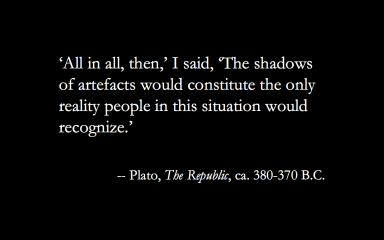http://jmonterorhsenglitcomp.blogspot.com/
http://rtownerhsenglitcomp.blogspot.com/http://jthompsonrhsenglitcomp.blogspot.com/
http://jhaloprhsenglitcomp.blogspot.com/http://sgrhsenglitcomp.blogspot.com/
http://kgreenuprhsenglitcomp.blogspot.com/
http://marriagarhsenglitcomp.blogspot.com/
http://ukimrhsenglitcomp.blogspot.com/
http://hrobelrhsenglitcomp.blogspot.com/
http://wveroskirhsenglitcomp.blogspot.com/
http://kgurgiolorhsenglitcomp55.blogspot.com/
http://kgriffithrhslitcomp.blogspot.com/
http://kstevensrhsenglitcomp.blogspot.com/
http://sarmasrhsenglitcomp.blogspot.com/
http://ltrhsenglitcomp.blogspot.com/
http://rsierrarhsenglitcomp.blogspot.com/
http://pkimrhsenglitcomp.blogspot.com/
http://madisonmather.blogspot.com/
http://lbfor3.blogspot.com/
http://ebordonrhsenglitcomp.blogspot.com/
http://rnguyensaplitcompblog.blogspot.com/
http://oinessrhsenglitcomp.blogspot.com/
http://bcastillorhsenglitcomp.blogspot.com/
Monday, February 25, 2013
The time of my life
I used this time to do my journal and to catch up on work. I also used most of this time to work on my scholarships. I have Ruth pre edited my essay for the scholarship. For the rest of the time I studied for my AP government test.
FIRST QUARTER REVIEW
This quarter I have tried to priorities my assignments by what is most important to do . Also I have been working on my college stuff such as college housing applications and scholarships. This all has taken most of my time , I find my self not having enough time in a day to do all that I have to even though I get little sleep. For my senior project, my group and I have been planning on how we are going to do it and are brainstorming new ideas to incorporate in our project. For this semester I am planning to figure out how to manage my time wisely to do everything that I must do.
Tuesday, February 19, 2013
lit terms 111- finish
Romanticism: movement
in western culture beginning in the eighteenth and peaking in the nineteenth
century as a revolt against Classicism; imagination was valued over reason and
fact.
Satire: ridicules or
condemns the weakness and wrong doings of individuals, groups, institutions, or
humanity in general.
Scansion: the analysis of verse in terms of meter.
Setting: the time and place in which events in a short
story, novel, play, or narrative poem occur.
Simile: a figure of
speech comparing two essentially unlike things through the use of a specific
word of comparison.
Soliloquy: an extended speech, usually in a drama, delivered
by a character alone on stage.
Spiritual: a folk song, usually on a religious theme.
Speaker: a narrator, the one speaking.
Stereotype: cliché; a simplified, standardized conception
with a special meaning and appeal for members of a group; a formula story.
Stream of Consciousness: the style of writing that attempts
to imitate the natural flow of a character’s thoughts, feelings, reflections,
memories, and mental images, as the character experiences them.
Structure: the planned framework of a literary selection;
its apparent organization.
Style: the manner of
putting thoughts into words; a characteristic way of writing or speaking.
Subordination: the couching of less important ideas in less
important structures of language.
Surrealism: a style in literature and painting that stresses
the subconscious or the nonrational aspects of man’s existence characterized by
the juxtaposition of the bizarre and the banal.
Suspension of Disbelief: suspend not believing in order to
enjoy it.
Symbol: something which stands for something else, yet has a
meaning of its own.
Synesthesia: the use of one sense to convey the experience
of another sense.
Synecdoche: another form of name changing, in which a part
stands for the whole.
Syntax: the arrangement and grammatical relations of words
in a sentence.
Theme: main idea of
the story; its message(s).
Thesis: a proposition for consideration, especially one to
be discussed and proved
or disproved; the main idea.
Tone: the devices used to create the mood and atmosphere of
a literary work; the
author’s perceived point of view.
Tongue in Cheek: a type of humor in which the speaker feigns
seriousness; a.k.a. “dry” or “dead pan”
Tragedy: in literature: any composition with a somber theme
carried to a disastrous conclusion; a fatal event; protagonist usually is
heroic but tragically (fatally) flawed
Understatement: opposite of hyperbole; saying less than you
mean for emphasis
Vernacular: everyday speech
Voice: The textual
features, such as diction and sentence structures, that convey a writer’s or
speaker’s pesona
.
Zeitgeist: the feeling of a particular era in history
Monday, February 18, 2013
I AM HERE
During the first grading period I wasn't doing what I would have liked to because of all the other things that I was doing such as other school work, college stuff, and scholarships. I do think that I have made some progress toward my SMART goal by trying to get all of my things done with the little amount of time that I have to do it. I am so excited to do my senior project its going to be very fun and entertaining, all that we have done is just plan out the main idea.
I AM HERE!!!!!
lit terms 51-110
Flashback: a narrative device that flashes back to prior
events.
Foil: a person or thing that, by contrast, makes another
seem better or more prominent.
Folk Tale: story passed on by word of mouth.
Foreshadowing: in fiction and drama, a device to prepare the
reader for the outcome of the action; “planning” to make the outcome
convincing, though not to give it away.
Free Verse: verse without conventional metrical pattern,
with irregular pattern or no rhyme.
Genre: a category or class of artistic endeavor having a
particular form, technique, or content.
Gothic Tale: a style in literature characterized by gloomy
settings, violent or grotesque action, and a mood of decay, degeneration, and
decadence.
Hyperbole: an exaggerated statement often used as a figure
of speech or to prove a point.
Imagery: figures of speech or vivid description, conveying
images through any of the senses.
Implication: a meaning or understanding that is to be arrive
at by the reader but that is not fully and explicitly stated by the author.
Incongruity: the deliberate joining of opposites or of
elements that are not appropriate to each other.
Inference: a judgement or conclusion based on evidence
presented; the forming of an opinion which possesses some degree of probability
according to facts already available.
Irony: a contrast or incongruity between what is said and
what is meant, or what is expected to happen and what actually happens, or what
is thought to be happening and what is actually happening.
Interior Monologue: a form of writing which represents the
inner thoughts of a character; the recording of the internal, emotional
experience(s) of an individual; generally the reader is given the impression of
overhearing the interior monologue.
Inversion: words out of order for emphasis.
Juxtaposition: the intentional placement of a word, phrase,
sentences of paragraph to contrast with another nearby.
Lyric: a poem having musical form and quality; a short
outburst of the author’s innermost thoughts and feelings.
Magic(al) Realism: a
genre developed in Latin America which juxtaposes the everyday with the marvelous or magical.
Metaphor(extended, controlling, and mixed): an analogy that
compare two different
things imaginatively.
Extended: a metaphor that is extended or developed as far as
the writer
wants to take it.

Controlling: a metaphor that runs throughout the piece of
work.
Mixed: a metaphor that ineffectively blends two or more
analogies.
Metonymy: literally
“name changing” a device of figurative language in which the name of an
attribute or associated thing is substituted for the usual name of a thing.
Mode of Discourse:
argument (persuasion), narration, description, and exposition.
Modernism: literary
movement characterized by stylistic experimentation, rejection of tradition,
interest in symbolism and psychology
Monologue: an
extended speech by a character in a play, short story, novel, or narrative
poem.
Mood: the
predominating atmosphere evoked by a literary piece.
Motif: a recurring
feature (name, image, or phrase) in a piece of literature.
Myth: a story, often
about immortals, and sometimes connected with religious rituals, that attempts
to give meaning to the mysteries of the world.
Narrative: a story or
description of events.
Narrator: one who narrates,
or tells, a story.
Naturalism: extreme form of realism.
Novelette/Novella: short story; short prose narrative, often
satirical.
Omniscient Point of View:
knowing all things, usually the third person.
Onomatopoeia: use of a word whose sound in some degree
imitates or suggests its
meaning.
Oxymoron: a figure of speech in which two contradicting
words or phrases are combined to produce a rhetorical effect by means of a
concise paradox.
Pacing: rate of
movement; tempo.
Parable: a story
designed to convey some religious principle, moral lesson, or general truth.
Paradox: a statement
apparently self-contradictory or absurd but really containing a possible truth;
an opinion contrary to generally accepted ideas.
Parallelism: the principle in sentence structure that states
elements of equal function should have equal form.
Parody: an imitation
of mimicking of a composition or of the style of a well-known artist.
Pathos: the ability
in literature to call forth feelings of pity, compassion, and/or sadness.
Pedantry: a display of learning for its own sake.
Personification: a figure of speech attributing human
qualities to inanimate objects or
abstract ideas.
Plot: a plan or scheme to accomplish a purpose.
Poignant: eliciting
sorrow or sentiment.
Point of View: the attitude unifying any oral or written
argumentation; in description, the physical point from which the observer views
what he is describing.
Postmodernism: literature characterized by experimentation,
irony, nontraditional forms, multiple meanings, playfulness and a blurred
boundary between real and imaginary.
Prose: the ordinary
form of spoken and written language; language that does not have a regular
rhyme pattern.
Protagonist: the central character in a work of fiction;
opposes antagonist.
Pun: play on words;
the humorous use of a word emphasizing different meanings or applications.
Purpose: the intended result wished by an author.
Realism: writing
about the ordinary aspects of life in a straightfoward manner to reflect life
as it actually is.
Refrain: a phrase or
verse recurring at intervals in a poem or song; chorus.
Requiem: any chant,
dirge, hymn, or musical service for the dead.
Resolution: point in a literary work at which the chief
dramatic complication is worked out; denouement.
Restatement: idea repeated for emphasis.
Rhetoric: use of language, both written and verbal in order
to persuade.
Rhetorical Question: question suggesting its own answer or
not requiring an answer; used in argument or persuasion.
Subscribe to:
Comments (Atom)